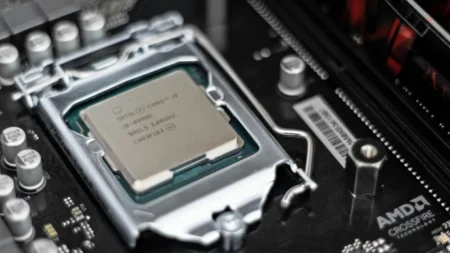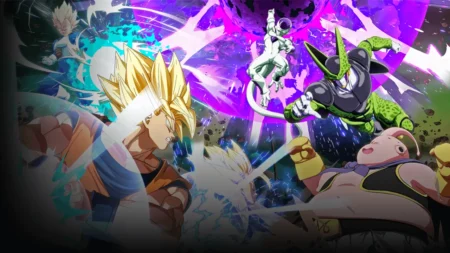In a rapidly changing digital world, mobile applications are playing a very significant role as the very first and direct point of contact between a business/organization and customers. Often, decisions to make apps taken in the right sequence pave the way to success for startups and technology entrepreneurs. This particularly gives the greatest concern between the choices of hiring Android developers and freelancing. So, one of the main purposes of the guide is to bring together all the necessary information for a CEO and CTO in a way that their decisions would be as balanced as they can, and the further actions of the latter would perfectly fit their business.
Understanding Your Needs
Before you hop into the hiring part, it’s really a must that you know exactly the needs of your project first. Here are some key aspects to consider:
- Budget: The budget you are working with will really determine who to hire.
- Timeline: Decide whether your project is something that is short-term, maybe less than two months, or if it will roll out over several months.
- Project Scope: How do you intend to define the complexity and scale against which you will measure the mobile app development?
- Technical Expertise: Decide on whether the projects you are handling are in need of a senior developer, or a beginner would do just fine in handling them.
- Experience and Quality: Choose between experienced professionals and newcomers based on your project’s demands.
Hiring Android Developers
There are several benefits and challenges associated to hire Android developers on board.
Benefits
- Team Integration: Your Android developers get well acquainted with the culture and vision of your company.
- Project Control: Exercise hands-on eyes on the development process to remain aligned with the project objectives.
- Ongoing Support: Make sure there are timely updates for the app bug fixing, and general maintenance after the launch.
Challenges
- Cost: A large financial outlay is required during onset and implementation in terms of salaries, infrastructure, and benefits.
- Time-Consuming: It may take several weeks to even a few months to find a good fit.
- Limited Expertise: In-house developers may also not have the required proficiency for complex projects, which may need recruitment.
Working with Freelancers
Teaming up with freelance Android developers offers many advantages, but it surely has its pitfalls.
Advantages
- Flexibility: They can easily be hired for very specific tasks or projects with short-term timelines that help modulate the workload within.
- Cost-Effectiveness: Hiring a freelancer is likely to be cost-effective, considering that you pay only for the work done without necessarily getting yourself into a long-term commitment.
- Talent Pool with the Globe: Freelancers offer skills and experience from all over the world.
Challenges
- Communication Issues: Problems such as time zone differences and, perhaps worse, having to hack your way around the remote communication and collaboration environment will trigger many delays and misunderstandings.
- Consistency and Commitment: Most likely, freelancers are committed to working with several clients at a time; therefore, quality execution for your project might be compromised.
- Quality Control: The very nature of it means that there is always an inbuilt risk of nature, making your quality inconsistent and further resulting in additional time and effort to carry out revisions and corrections.
Making the Right Choice
In that sense, when deciding which is the best path for your project, think of the following considerations:
- Project Complexity: When projects are more complex and long-term, there is a high likelihood that the focused effort of the in-house team will bring more benefits to the organization.
- Long-term Vision: If continuous development and iteration are key aspects of your product roadmap, an in-house developer may provide the best results.
- Budget Constraints: Freelancers will be a cost-effective choice for startups or people with budgetary constraints and short-term needs for projects.
- Scalability: If a project is expected to scale rapidly in size and complexity, doing it with an in-house team would allow for smoother transitions as scaling proceeds. This ensures your team can grow with your project, retaining an intimately known architecture and history.
- Intellectual Property Security: In-house developers ensure control over all intellectual property. The security of data is also guaranteed from within while decreasing, to a reasonable level, the risks that emanate from sharing proprietary information outside the firm.
Checklist for Decision-Making
- Make sure you know exactly what your project needs so you can figure out how much experience the developer should have.
- Take a good look at your budget to decide if it’s better to hire someone permanently or to work with freelancers.
- Think about how your choice will impact the quality of your product and how your team works together over time.
- Check out the past projects and portfolios of your potential hires or freelancers to see if they’re a good fit for your project.
- Lastly, have a chat or interview with them or give them a small test project to see how well you communicate and how the developers work.
Conclusion
Deciding whether to hire Android app developers or to go with freelancers really boils down to a few key things: the size of your project, your budget, and your long-term goals. Each option has its own set of perks and drawbacks. It’s really important to nail down exactly what you need from an Android app developer before making a move. With the right planning and some thoughtful consideration, you can set your project up for success, whether that means bringing on a full-time team or hiring freelancers. Just make sure to weigh your options carefully and prepare for any bumps that might come up along the way.
Discover more from Technical Master - Gadgets Reviews, Guides and Gaming News
Subscribe to get the latest posts sent to your email.








